capacity building & TRAINING
We assist national statistical offices and survey organizations worldwide with the development of their technical skills
Capacity building & TRaINING
We assist survey organizations worldwide with the development of their technical skills
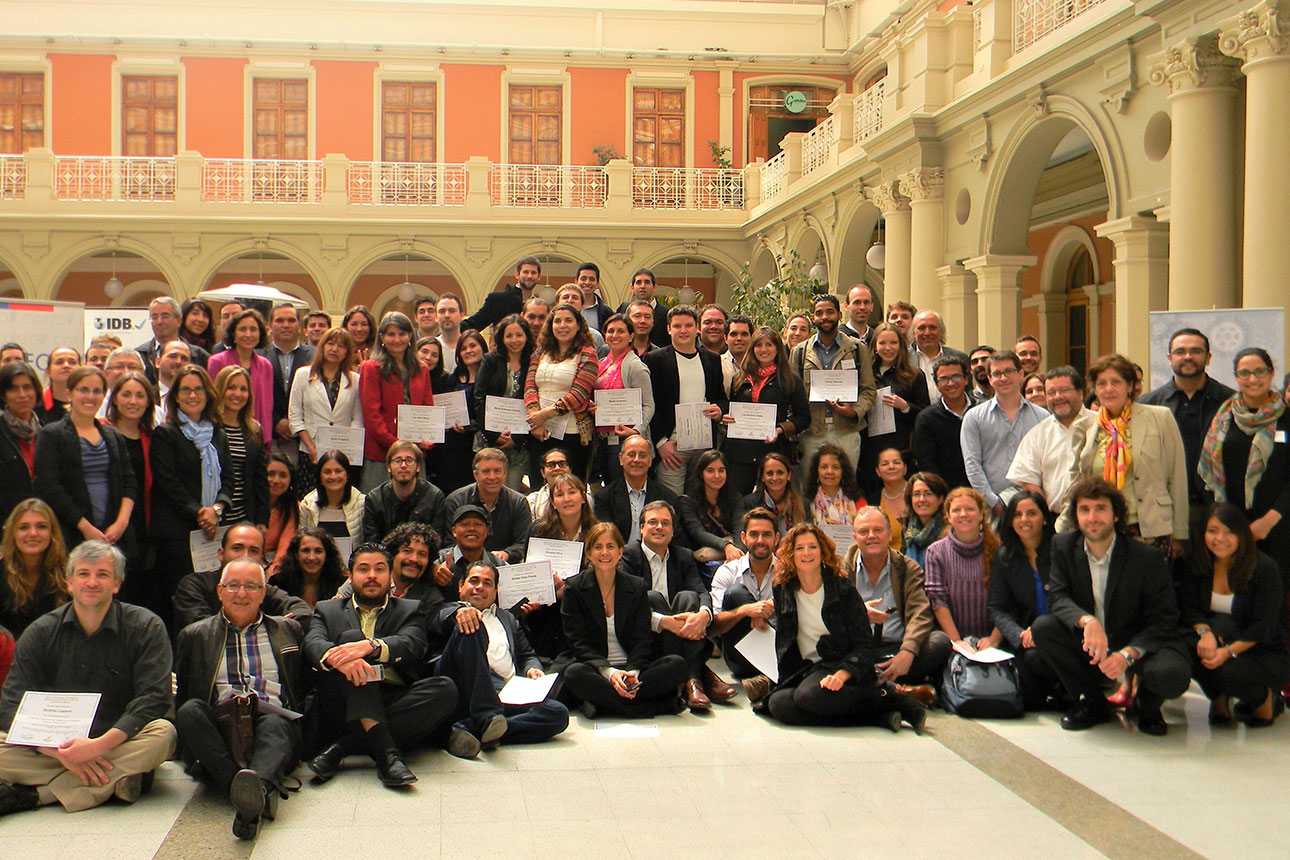
For over thirty years Sistemas Integrales has assisted statistical and other organizations worldwide with the development of their capabilities through training on all elements of survey methods: sample design, instrument design, field implementation, quality control and data management.
This assistance is provided either in the form of courses for medium and large audiences or as hands-on workshops for small groups in the context of a concrete survey project. Such courses and workshops may range in duration from some days to two weeks and their contents are customized to meet participants’ needs. All meetings can be conducted in the client’s country or in ours, in English, French, Spanish, German or Portuguese.
Over the years we have delivered numerous courses and workshops in different countries for diverse institutions, either requested by or organized together with development agencies and universities
Survey Quality Control Methods. University of Nazarbayev, Kazakhstan. 2019
Sampling and Weighting Techniques. Inter-American Development Bank, Guyana Bureau of Statistics. Georgetown, 2018.
Sampling for Household Surveys. Organized by the Oxford Poverty & Human Development Initiative (OPHI). Oxford, 2016.
Techniques de Sondage pour les Enquêtes Auprès des Ménages. Organized by the World Bank for statisticians from West African countries. Dakar, 2016.
Sampling for Household Surveys in Southern Africa. For statisticians from 7 South African countries. Mauritius, 2016.
Sampling for Household Surveys. Organized by Oxford Policy Management. Oxford 2015 and 2016.
Sampling for Household Surveys. Organized by the World Bank. Washington D.C, every year from 2003 through 2015.
Design and Implementation of Living Standards Surveys. Organized by the World Bank. Washington D.C, every year from 1990 through 2015.
Berkeley-IDB Impact Evaluation Collaborative (BIC). Organized by the Inter-American Development Bank and the University of California, Berkeley. Berkeley, 2014.
International Course on Impact Evaluation in Practice. Organized by the Inter-American Development Bank, JPAL and Sistemas Integrales. Santiago, 2014.
International Workshop on Surveys and Public Policy Impact Evaluation. Organized by Sistemas Integrales, the World Bank and the Inter-American Development Bank. Santiago, 2013.
Sampling for Household Surveys. Organized by the International Food Policy Research Institute (IFPRI). Washington D.C., 2013.
International Workshop on Impact Evaluation of Public Policies. Organized by Sistemas Integrales, the Inter-American Development Bank and the World Bank. Santiago, 2012.
Berkeley-IDB Impact Evaluation Collaborative (BIC). Organized by the Inter-American Development Bank and the University of California, Berkeley. Berkeley, 2012.
Sampling for Household Surveys in Transition Economies. At the World Bank Training Center for Russia and Transition Countries. Vienna, 2012.
Sampling for Household Surveys. Organized by the Inter-American Development Bank. Washington D.C., 2009.
Sampling for Household Surveys in the Caribbean. Organized by the Organization of Eastern Caribbean States. Four Caribbean countries, 2006.
Sampling for Household Surveys in the Caribbean. Organized by the World Bank. Saint Lucia, 2006.
Design and Implementation of Living Standards Surveys in Latin America. Organized by the World Bank, the Inter-American Development Bank and INEGI. Aguascalientes, every year from 1999 through 2005.
Techniques de Sondage pour les Enquêtes Auprès des Ménages. Organized by the Institut National de la Statistique et des Études Économiques (INSEE). Libourne, 1997.
Survey Quality Control Methods. University of Nazarbayev, Kazakhstan. 2019
Sampling and Weighting Techniques. Inter-American Development Bank, Guyana Bureau of Statistics. Georgetown, 2018.
Sampling for Household Surveys. Organized by the Oxford Poverty & Human Development Initiative (OPHI). Oxford, 2016.
Techniques de Sondage pour les Enquêtes Auprès des Ménages. Organized by the World Bank for statisticians from West African countries. Dakar, 2016.
Sampling for Household Surveys in Southern Africa. For statisticians from 7 South African countries. Mauritius, 2016.
Sampling for Household Surveys. Organized by Oxford Policy Management. Oxford 2015 and 2016.
Sampling for Household Surveys. Organized by the World Bank. Washington D.C, every year from 2003 through 2015.
Design and Implementation of Living Standards Surveys. Organized by the World Bank. Washington D.C, every year from 1990 through 2015.
Berkeley-IDB Impact Evaluation Collaborative (BIC). Organized by the Inter-American Development Bank and the University of California, Berkeley. Berkeley, 2014.
International Course on Impact Evaluation in Practice. Organized by the Inter-American Development Bank, JPAL and Sistemas Integrales. Santiago, 2014.
International Workshop on Surveys and Public Policy Impact Evaluation. Organized by Sistemas Integrales, the World Bank and the Inter-American Development Bank. Santiago, 2013.
Sampling for Household Surveys. Organized by the International Food Policy Research Institute (IFPRI). Washington D.C., 2013.
International Workshop on Impact Evaluation of Public Policies. Organized by Sistemas Integrales, the Inter-American Development Bank and the World Bank. Santiago, 2012.
Berkeley-IDB Impact Evaluation Collaborative (BIC). Organized by the Inter-American Development Bank and the University of California, Berkeley. Berkeley, 2012.
Sampling for Household Surveys in Transition Economies. At the World Bank Training Center for Russia and Transition Countries. Vienna, 2012.
Sampling for Household Surveys. Organized by the Inter-American Development Bank. Washington D.C., 2009.
Sampling for Household Surveys in the Caribbean. Organized by the Organization of Eastern Caribbean States. Four Caribbean countries, 2006.
Sampling for Household Surveys in the Caribbean. Organized by the World Bank. Saint Lucia, 2006.
Design and Implementation of Living Standards Surveys in Latin America. Organized by the World Bank, the Inter-American Development Bank and INEGI. Aguascalientes, every year from 1999 through 2005.
Techniques de Sondage pour les Enquêtes Auprès des Ménages. Organized by the Institut National de la Statistique et des Études Économiques (INSEE). Libourne, 1997.
courses and workshops we offer
Sample design, measurement instruments, data management and quality control are key aspects of survey design and implementation to produce valid, reliable and consistent data. Our courses cover both theoretical and practical elements of the survey practice and are delivered by international experts in the field. They allow participants to examine first-hand experiences in concrete surveys, including problems encountered and solutions adopted.
Applied Sampling Courses
Sistemas Integrales delivers two complementary sampling courses, covering both theoretical notions and practical aspects of sampling for household surveys. The courses are aimed at managers and technical staff working within governments or international agencies and involved in programs on poverty, employment, health, education and living conditions. Both courses can be delivered in all countries and for audiences of different sizes, in English, French, Spanish and Portuguese.
Course on Applied Sampling I: Survey Sampling and Weighting
This course covers sampling theory and practice of sample design, weighting and estimation, with an emphasis on applications. Examples are based on actual surveys and in-class exercises will give participants hands-on experience with the techniques learned. Participants will also gain an understanding of topics and challenges common to the survey sampling practice.
Duration: 10 full days or 20 half days.
Prerequisites: Notions of probability theory and mathematical statistics. Working knowledge of Excel and Stata or SPSS.
Requirements: Each participant should work with Excel and Stata on his/her own computer.
Content:
1. Probability sampling and why sampling needs to be random. Types of non-probability samples and their pitfalls. Population and sampling distributions. Notions of estimator, estimate and sampling error. The Central Limit Theorem. Unbiased estimators, precision and accuracy.
2. Simple Random Sampling and Systematic sampling. Estimation of a proportion. Sampling error: sampling variance, standard error, confidence intervals and coefficient of variation. How are sampling errors affected by the population size, the sample size, and the estimated parameter. Estimation of a mean.
3. Exercises with Simple Random Sampling and Systematic sampling: sample selection and estimation.
4. Stratified sampling. Strata and domains. Statistical efficiency of a sample design. Advantages and disadvantages of different allocation criteria. Sample allocation simulations based on census data. Exercises.
5. Cluster sampling and two-stage sampling. Advantages and downsides. Intraclass correlation and design effects. Area sampling. Unequal sized cluster sampling. Selection of primary sampling units with probabilities proportionate to size and selection of secondary sampling units with equal probabilities. Exercises.
6. Complex area sampling. First- and second-stage sample frames. Segmenting. Stratification and selection of areas with probability proportionate to size using census data. Household listing operations. Selection of dwellings and households. Synthetic design effects. Exercises using data from listing operations.
7. Weighting techniques. Base weights, nonresponse adjustment and calibration (poststratification and raking). Exercises on the computation of weights under different sample designs.
8. Sampling error estimation for complex samples using Stata. The ultimate cluster approach. Linearized variance estimation. Exercises and examples using actual survey data.
Final examination.Â
Course on Applied Sampling II: Topics in the Survey Sampling Practice
This is a moderately advanced sampling course, with an emphasis on the practical aspects of sample design, weighting and estimation. The course includes in-class practice that will give participants hands-on experience with the techniques learned in both Applied Sampling courses I and II. This practice uses real survey data and covers all the successive stages of sample design, weighting, estimation and presentation of results. The course will also provide participants with an understanding of topics and challenges common to the survey practice.
Duration:Â 4 full days or 8 half days
Prerequisites (minimum):Â Course I (Introduction to Sampling for Household Surveys). Working knowledge of Excel and Stata.
Prerequisites (desirable): Basic Stata programming skills.
Requirements: Each participant should work with Excel and Stata on his/her own computer.
Content:
1. Regular updating and preparation of sampling frames. Master samples: benefits and drawbacks. Use of sample replicates over time.
2. Multistage sampling. Practice with sample selection based on a complex design using census and listing data.
3. Weighting techniques. Nonresponse and its effects on survey estimates. Adjusting base weights for eligibility and nonresponse. Exercises using field results. Poststratification and calibration using ancillary data. Exercises.
4. Resampling variance estimation techniques: jackknife repeated replication, balanced repeated replication and bootstrap. Estimation for subgroups. Exercises. Best practices for the presentation of results from complex sample surveys.
5. Longitudinal household surveys with rotating panels. Statistical benefits and operational challenges. International cases. Estimation with rotating panels.
6. Sampling rare populations. Traditional and innovative strategies. Analysis of real cases.
7. Survey quality control and improved fieldwork strategies. The Comprehensive Fieldwork Quality Control (CFQC) system. Examples from different surveys. Exercises.
8. Sampling for business surveys. Business registers, their completeness and opportunity. Element and group estimates.
9. Sampling strategies using satellite imagery. Grid sampling. Geographic Information Systems (GIS) software.
Final examination.
Â
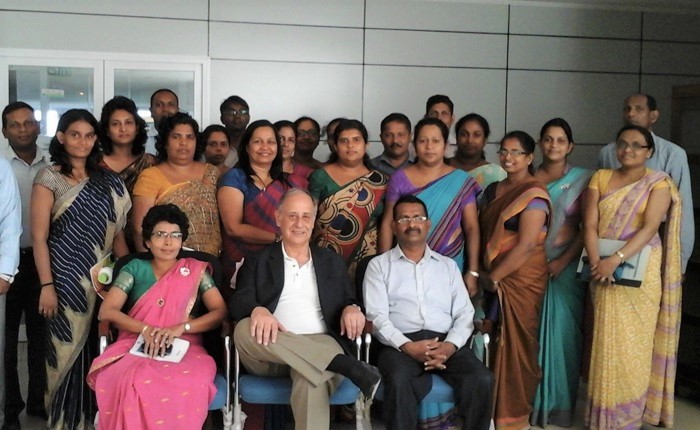
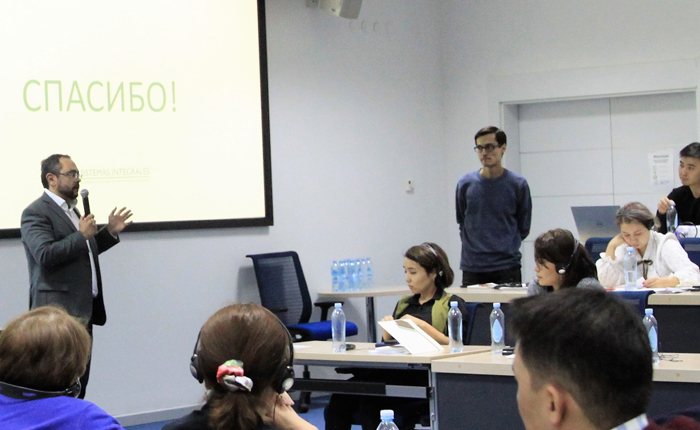
currently offered workshops
Drawing on our extensive international experience, we train multilateral and government agencies in survey methodology to help them develop the skills required to execute and manage a specific survey. Over the years, we have delivered a large number of hands-on workshops to assist surveys of all types, including studies on living standards, labor force, income and expenditure, health and education, among others. This training typically takes place at the statistical bureau of the country where the survey is conducted or at our premises.
Workshop on Survey Quality Control and Data Management
International survey practice usually gives a great deal of attention to minimizing sampling error, whereas efforts to keep nonsampling error under control are often neglected. However, nonsampling errors may have severe implications for the accuracy of the data collected, and standard data cleaning at the end of fieldwork is not a solution and can be misleading.
The main objective of this workshop is to illustrate complementary strategies for detecting and reducing common types of errors generated during the field stage, such as coverage error, nonresponse error and interviewer effects on measurement error. The workshop starts by presenting the Total Survey Error framework, which identifies all the possible sources of error present in every survey. It then introduces a set of techniques and procedures that are implemented throughout the full fieldwork period to detect errors in a timely fashion and take immediate action while still in the field. Such techniques include intra-questionnaire checks, monitoring of aggregate quality indicators, back-checks and randomized audio supervision, plus suitable corrective interventions for dealing with the identified problems. Classes will provide numerous examples based on recent surveys conducted in different countries and on diverse subjects such as labor, household budget, poverty, health, nutrition, gender violence and agriculture.
The workshop will offer detailed guidelines for setting up a Comprehensive Survey Quality Control system. Participants will have the opportunity to work with instruments and data from real surveys and apply the quality control methods learned. The class will use Stata, R or SPSS and a data visualization application.

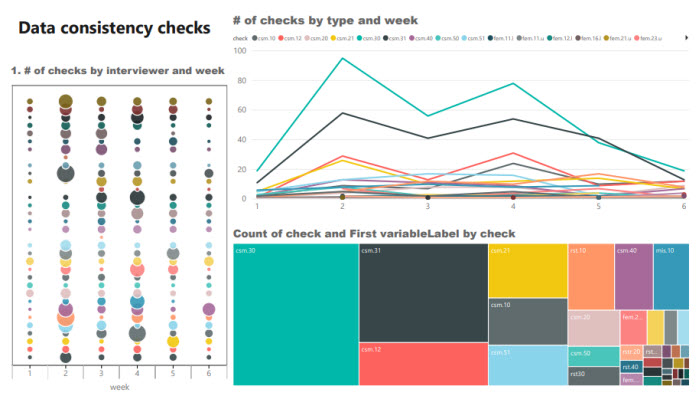
By the end of the workshop, participants will
- be able to recognize the various sources of survey error
- know how to implement a range of techniques to detect different types of error produced in the field
- understand what actions can be taken to prevent and reduce those errors, thus improving the accuracy and reliability of the collected data
- be able to assess the quality of any survey data before its analysis.
Contents: Workshop on Survey Quality Control and Data Management
Duration: 5 full days (or 10 half days).
Prerequisites: Experience in the management and execution of household surveys. Working knowledge of Excel.
Requirements:Â Each participant should work with Stata or SPSS on his/her own computer.
MODULE 1
1. Why Survey Quality Control? Quality assurance and quality control. Sampling and nonsampling errors.
The Total Survey Error Framework. Biases and variances.
2. Coverage error and listing operations. Coverage bias. Interviewer effects.
3. Unit nonresponse and item nonresponse. Nonresponse bias. Interviewer effects. Determinants of nonresponse and strategies for reducing unit and item nonresponse.
4. Measurement Error. Sources of measurement error. Interviewer bias and interviewer variance.
Intra-interviewer correlation. Interviewer design effect. Then need for interpenetrating design.
MODULE 2Â
1. Monitoring of fieldwork quality and corrective interventions. Evaluation of final data.
2. Traditional and Innovative Quality Control Techniques. Intra-questionnaire checks (CAPI and CAFE), monitoring of aggregate quality indicators, back-checks, randomized audio auditing, GPS, mystery respondents. Tracking interview results. The importance of training. Why not data cleaning?
3. Types of intra-questionnaire checks and types of indicators based on data and paradata.
MODULE 3
1. Intra-questionnaire checks.
2. Identification of meaningful Quality Indicators for an actual survey.
3. Computation of Quality Indicators based on data and paradata.
4. Display of Quality Indicators. Introduction to data visualization software.
5. The Interviewer Risk Index. Principal Component Analysis. Computation.
6. Randomized Audio Supervision (RAS).
MODULE 4
1. Fieldwork organization. Roles, responsibilities, incentive structures. Effective feedback cycles for fieldwork teams.
2. Ensuring consistent interviews.
3. Tracking of progress and response rates.
4. Setup of a Comprehensive Quality Control System.
Â
Workshop on Survey Methods
This workshop has a learning-by-doing approach and covers all practical aspects of sample design, instrument conception, fieldwork organization, quality control and budgeting, which are all key elements for producing valid, reliable and consistent data. All sessions are delivered by international experts.
This workshop is aimed at professionals from government and multilateral agencies, statistical offices and academics. It is intended for technical agents who work in the management and implementation of surveys. It is also ideal for people responsible for procuring survey services or who use survey data for the formulation, monitoring and evaluation of public policies in areas such as employment, health, education, poverty, nutrition, living conditions, etc. It can be delivered in all countries, in English, French, Spanish and Portuguese.Â
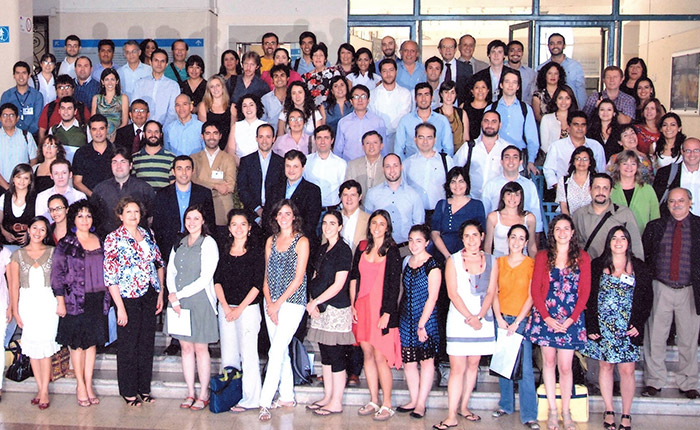
Objectives
- Understand the importance of producing and analyzing valid and reliable data.
- Identify and analyze the stages of the survey cycle, covering both design and implementation.
- Gain the skills to develop and manage a survey project: sample design, instrument conception, fieldwork organization, quality control and budgeting.
- Gain the skills to produce thorough and precise terms of reference for survey projects to be implemented by third parties.
- Manage the necessary tools to assess the proposals submitted by survey firms.
Address
Jose M de la Barra 412, piso 4
Postcode 6500446
Santiago, Chile
Phone
+562 2638 1841
+562 2639 4554

Sistemas Integrales 2018 - All Rights Reserved
Address
José M de la Barra 412, piso 4
Postcode 6500446
Santiago, Chile
Phone
+562 2638 1841
+562 2639 4554
EmailÂ



Sistemas Integrales 2018 – All Rights Reserved
